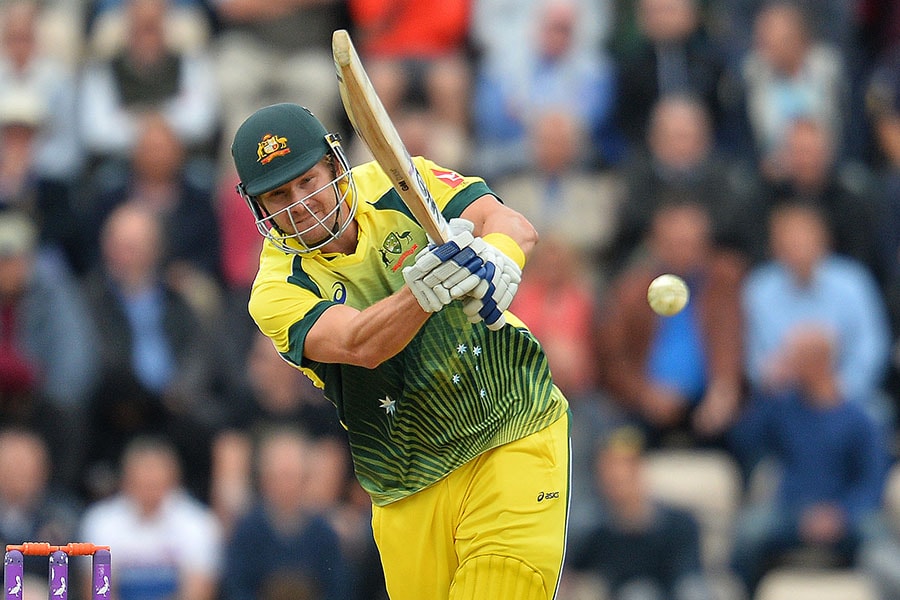
I was once scared to play the short ball; then I retrained my mind: Shane Watson
The former Aussie World Cup-winning allrounder, who's recently authored a book on mental skills in cricket, speaks about how he put mind over matter and why the Australian team comes up trumps in clutch matches
 Shane Watson has two World Cups and as many Champions Trophy titles to his name. Image: GLYN KIRK / AFP
Shane Watson has two World Cups and as many Champions Trophy titles to his name. Image: GLYN KIRK / AFP
2014, the year Phil Hughes passed away from a cerebral haemorrhage after being struck by a bouncer, was a watershed moment for former cricketer Shane Watson. Following Hughes' death, the Australian allrounder began to fear fast bowling for the first time in his life. Watson knew furious pace could leave him injured, with bruises, fractures, what have you. "But after Phil's death, I thought the next ball from a fast bowler had the chance to have that impact on my life as well," he says. "From that moment on, my performances against fast bowling just spiralled and brought me to a point where I was going to retire."
As he continued to struggle with his mental demons, Watson had a chance meeting with IndyCar champion Will Power, who connected him with Dr Jacques Dallaire, a performance specialist in the US. Dallaire knew zilch about cricket but was proficient in handholding elite athletes through pressure situations. "I spent two days with him, and things changed significantly from then. Just by implementing those mental skills he taught me, I became confident I was going to turn things around," says Watson, who has two World Cups and as many Champions Trophy titles to his name. He continued to play international cricket for another year, captaining the T20 team and franchise cricket for another five, picking up the player of the tournament in IPL 2018.
Last year, he compiled his learnings, weaving them with his own experiences of international cricket for nearly two decades, and authored Winning The Inner Battle: Bringing The Best Version Of You, To Cricket. Early next year, the book will be republished in India by HarperCollins.
In an exclusive interview with Forbes India, Watson breaks down the techniques of putting mind over matter and the secrets of high performance in clutch moments. Edited excerpts:
'It was always going to be cricket'
I got into cricket primarily because of my dad, who worked in the Air Force and was a cricket tragic. As long as I can remember, I was always sitting with him on the couch watching cricket. He would also take me to Test matches, or Sheffield Shield matches when I was a kid. So, while I played all sports, cricket was the one I loved the most, and it was also my way of connecting with him. And I still remember the day—probably a Sunday because mum was ironing clothes—that I was watching a Test match and I told her, "I want to do that." Like all parents go, my mum also turned around and said: "That's great. If you work hard, you never know what's possible." When I was 16, I had to pick my sport, and the number of bad injuries I saw in rugby had an impact on my decision. Hence, I just focussed on cricket. I was very fortunate that, when I came through, there were huge opportunities for fast-bowling allrounders in Australian cricket.








